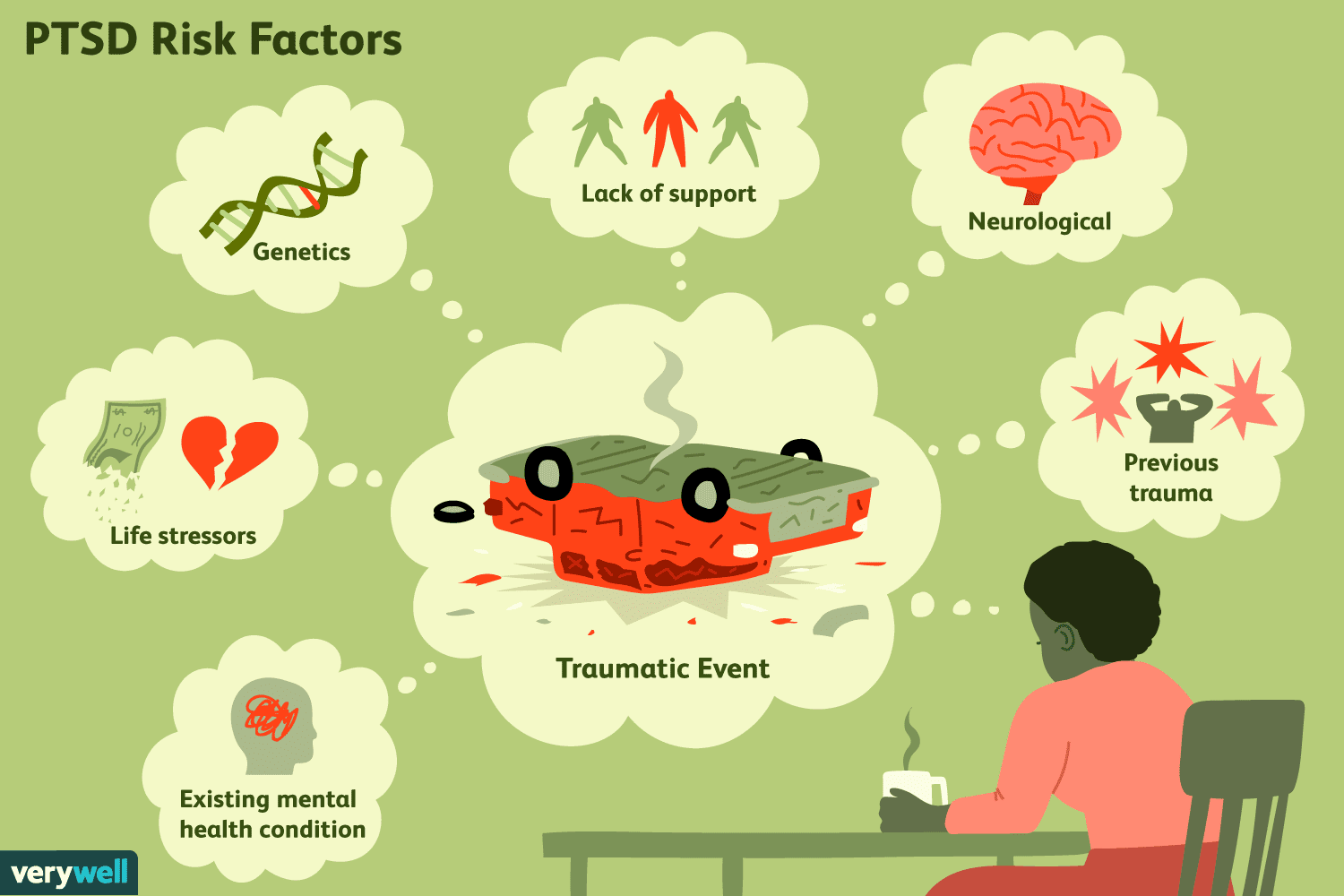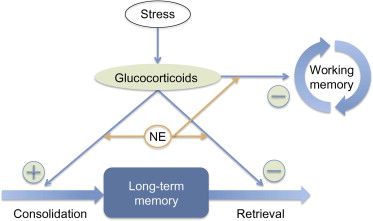This blog post will focus on the interesting intersection between anxiety and memories. I personally found this fascinating because before discussing this in class, I never considered how memories of past events register in our brains, and how these events translate into trauma. I mostly investigated this topic from a psychology perspective but what does neuroscience have to say about this topic?
The brain’s ability to remember things is very important for our daily lives. Memories help us navigate the world, both physically and socially. They also help us adapt to changes and prepare for similar situations in the future. Sometimes, really stressful events can leave a lasting impact on our memory, especially if they’re traumatic.
 Figure 1. Diagram showing past events that could potentially lead to cases of anxiety disorders such as Post Traumatic Stress Disorder (PTSD) [2]
Figure 1. Diagram showing past events that could potentially lead to cases of anxiety disorders such as Post Traumatic Stress Disorder (PTSD) [2]
Research using animal models suggest that stress affects learning and memory processes in the brain, particularly the hippocampus. Stress-induced hormones enhance memory formation, which can be observed in various behavioral tests like the forced swim test. This test involves placing rodents in water where they show an immobility response, which is considered a learned behavior. Drugs that increase neurotransmitter levels can affect this behavior, making it an important tool for antidepressant drug screening. Glucocorticoid hormones play a crucial role in memory consolidation, particularly through the action of the glucocorticoid receptor in the hippocampus. This receptor is essential for the acquisition and consolidation of memories associated with stressful experiences. [2]
Looking into more of the neuroscience, the roles of glucocorticoid hormones as well as histone modifications are crucial in the brain’s response to stress. Studies found that stress-induced changes in specific histone marks in neurons of the hippocampus, a brain region involved in memory and stress response, were associated with increased transcription of certain genes. These changes were observed after exposure to psychological stressors like forced swimming and novelty but not physical stressors like cold exposure.
Another interesting knowledge on this topic is the role of the HPA axis in responding to stress. The release of cortisol regulated by the HPA axis (hypothalamic-pituitary-adrenal axis) and begins with the release of CRH from the hypothalamus. Cortisol is a glucocorticoid. Cortisol acts on glucose metabolism to maintain normal glucose levels especially during times of stress. [3]. Fluctuations in cortisol secretion often accompany psychiatric disorders, and normalization of its levels correlates with improvement in a patient’s health. This also means that cortisol may be useful as a biological marker that can help determine the likelihood of a mental illness, its onset, and the severity of symptoms. [4]

Figure 2. Schematic representing the brain’s response to stress [5]
References.
[1] Matthew Tull, P. (2021, April 21). How traumatic events cause PTSD. Verywell Mind. https://www.verywellmind.com/ptsd-causes-and-risk-factors-2797397
[2] Reul J. M. (2014). Making memories of stressful events: a journey along epigenetic, gene transcription, and signaling pathways. Frontiers in psychiatry, 5, 5. https://doi.org/10.3389/fpsyt.2014.00005
[3] Chourpiliadis, C. (2023, July 17). Physiology, glucocorticoids. StatPearls [Internet]. https://www.ncbi.nlm.nih.gov/books/NBK560897/
[4] Dziurkowska, E., & Wesolowski, M. (2021). Cortisol as a Biomarker of Mental Disorder Severity. Journal of clinical medicine, 10(21), 5204. https://doi.org/10.3390/jcm10215204
[5] Abercrombie, H. C., Abrari, K., Arbel, I., Barrett, D., Beato, M., Beckwith, B. E., Bisaz, R., Bohus, B., Brewin, C. R., Brown, E. S., Buchanan, T. W., Buss, C., Campeau, S., Cleare, A. J., … Bierer, L. M. (2009, March 31). Glucocorticoids and the regulation of memory in health and disease. Frontiers in Neuroendocrinology. https://www.sciencedirect.com/science/article/abs/pii/S009130220900003X#preview-section-abstract
